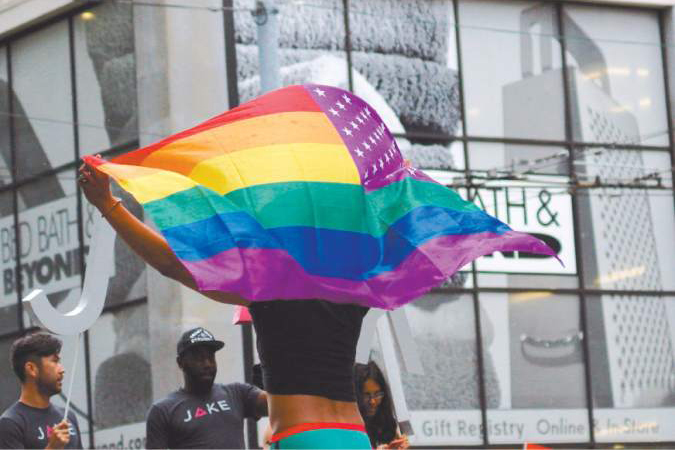An interesting outgrowth of the otherwise depressing state of affairs regarding LGBT rights in the South has been the strain it’s created between two pillars of the political right: Christian conservatives and big business.
Always a marriage of convenience rather than love, corporations have turned out to be some of the most powerful critics of regressive laws passed in North Carolina and Mississippi—threatening to withdraw billions of dollars in investments from the states if lawmakers don’t walk back their discriminatory actions.
As financial columnist James Surowiecki wrote in the New Yorker a few weeks ago, while the Christian right and big business long put up with each other for political expediency, “The LGBT fight shows how far that bargain has eroded. To many conservative business leaders, today’s social-conservative agenda looks anachronistic and is harmful to the bottom line.”
Which brings us to an announcement today that a large coalition of Washington businesses have filed an amicus brief to the Washington Supreme Court urging justices to uphold a law that bars businesses from discriminating against people based on their sexual orientation. The case pertains to Arlene’s Flowers, the Richmond florist that refused to provide wedding flowers for Robert Ingersoll and Curt Freed in 2013 because they were gay. A lower court already upheld the Washington Law Against Discrimination and the Washington Consumer Protection Act.
The businesses—including Microsoft, Amazon, and the Seattle Metropolitan Chamber of Commerce—argue to the court that allowing discrimination against LGBT people would make it difficult to recruit top talent to their firms and could open the door to other forms of discrimination.
“The business case for a diverse and inclusive workplace is … generally accepted,” the brief argues. “Among companies with more than $10 billion in annual revenues, 56 percent strongly agree that diversity helps drive innovation.”
The brief also nods to the purchasing power LGBT people wield.
“In 2012, lesbian, gay, bisexual and transgender adults in the U.S. represented $790 billion in total buying power—a significant force in local economies,” it reads. “If discrimination against LGBT individuals is justified by religious beliefs, as Appellants urge, LGBT individuals may leave Washington for a more tolerant location.”
“What we’ve seen around the country is business interests weighing in on discrimination, saying clearly this is contrary to their businesses interests,” says Doug Honig, spokesman for the ACLU Washington, which is representing Ingersoll and Freed.
This isn’t the first time business leaders have weighed in on LGBT issues. The Bezos family donated large sums to Washington’s gay marriage initiative. And the Seattle Metropolitan Chamber of Commerce has weighed in on previous LGBT issues. Among other efforts, it endorsed Referendum 74, which established marriage equality in Washington, and signed onto an amicus brief asking the U.S. Supreme Court to overturn same-sex marriage bans, according to Alicia Teel, director of communications with the chamber.
And as Surowiecki notes, as the religious right begins to accept that big business isn’t the ally it once was, the left might have to face another uncomfortable truth: Sometimes it’s nice when deep pockets let their presence be known in the pillars of government.








